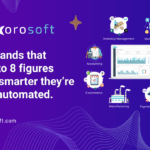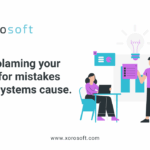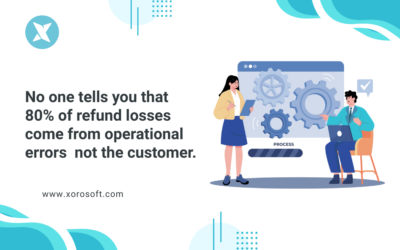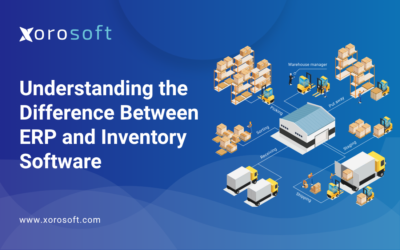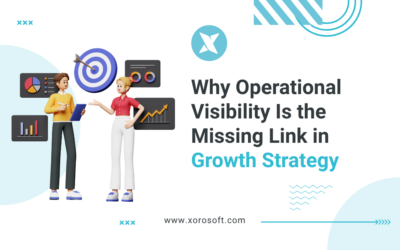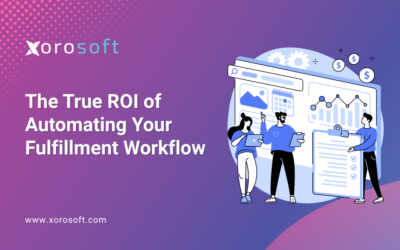
Introduction to ERP Systems
In today’s fast-paced and highly competitive business landscape, organizations are constantly seeking ways to streamline their operations and enhance efficiency. One such solution that has gained significant traction is the implementation of Enterprise Resource Planning (ERP) systems. ERP systems are comprehensive software platforms that integrate various business functions into a single, unified system. These systems have revolutionized financial management by providing businesses with a holistic view of their operations, enabling them to make informed decisions and drive growth.
Benefits of Implementing an ERP System
Implementing an ERP system offers a myriad of benefits for businesses of all sizes and industries. Firstly, it enhances efficiency by eliminating manual processes and automating routine tasks. This not only saves time but also reduces the risk of errors and enhances data accuracy. Additionally, an ERP system provides real-time visibility into financial data, allowing organizations to monitor their financial health and make data-driven decisions.
Furthermore, ERP systems facilitate collaboration and communication across departments by breaking down silos and promoting cross-functional processes. This leads to improved coordination and better decision-making, ultimately driving overall business growth. Lastly, ERP systems offer scalability and flexibility, allowing businesses to adapt to changing market conditions and expand their operations seamlessly.
The Evolution of ERP Systems
The concept of ERP systems can be traced back to the 1960s when businesses began using Material Requirements Planning (MRP) software to manage inventory and production processes. Over the years, these systems evolved into more sophisticated solutions that encompassed a broader range of business functions, giving rise to the modern-day ERP systems we know today.
With advancements in technology, ERP systems have become more user-friendly, customizable, and cloud-based. This has made them accessible to businesses of all sizes, not just large enterprises. Additionally, modern ERP systems now offer mobile compatibility, allowing users to access critical financial information anytime, anywhere.
Key Features of ERP Systems
ERP systems comprise a wide range of features that cater to various aspects of financial management. These features include:
-
Financial Reporting and Analysis: ERP systems provide robust reporting capabilities, enabling businesses to generate accurate financial reports and gain valuable insights into their financial performance.
-
Accounts Payable and Receivable: ERP systems streamline the accounts payable and receivable processes by automating invoice generation, payment processing, and tracking outstanding payments.
-
General Ledger: With a centralized general ledger, ERP systems enable businesses to capture and organize financial transactions, ensuring accurate and up-to-date financial records.
-
Budgeting and Forecasting: ERP systems offer advanced budgeting and forecasting tools that help businesses plan and allocate resources effectively, improving financial decision-making.
-
Tax Management: ERP systems simplify tax compliance by automating tax calculations, generating tax reports, and ensuring adherence to tax regulations.
How ERP Systems Revolutionize Financial Management
ERP systems have revolutionized financial management by streamlining processes, improving accuracy, and enhancing decision-making. One of the key ways ERP systems achieve this is by providing a real-time, holistic view of financial data. By integrating various financial functions such as accounting, budgeting, and tax management, ERP systems eliminate the need for manual data entry and reconciliation. This not only saves time but also reduces the risk of errors and ensures data consistency across the organization.
Furthermore, ERP systems offer advanced analytics and reporting capabilities that enable businesses to gain valuable insights into their financial performance. With customizable dashboards and real-time reports, organizations can monitor key financial metrics, identify trends, and make informed decisions. This empowers businesses to proactively address financial challenges, optimize cash flow, and drive profitability.
Additionally, ERP systems facilitate compliance with financial regulations and standards. By automating processes such as tax calculations and financial reporting, businesses can ensure accuracy and adherence to legal requirements. This not only minimizes the risk of penalties but also enhances the organization’s reputation and credibility.
Streamlining Inventory Management with ERP Systems
Effective inventory management is crucial for businesses to meet customer demands, minimize costs, and optimize cash flow. ERP systems play a vital role in streamlining inventory management by providing real-time visibility into inventory levels, tracking stock movements, and automating replenishment processes.
With an ERP system, businesses can optimize inventory levels, reduce stockouts, and avoid overstocking. By analyzing historical data and demand patterns, ERP systems can generate accurate demand forecasts, enabling businesses to plan their inventory levels effectively. This, in turn, leads to improved customer satisfaction and reduced carrying costs.
Moreover, ERP systems integrate inventory management with other business functions such as sales and procurement. This enables businesses to automate order processing, track shipments, and manage supplier relationships. By streamlining these processes, businesses can reduce lead times, improve order accuracy, and enhance overall supply chain efficiency.
Enhancing Accounting Processes with ERP Systems
Accurate and efficient accounting processes are essential for businesses to maintain financial health and comply with regulations. ERP systems offer a range of features that enhance accounting processes and ensure data accuracy.
Firstly, ERP systems automate routine accounting tasks such as journal entries, bank reconciliations, and financial statement generation. This not only saves time but also reduces the risk of errors associated with manual data entry. Additionally, ERP systems facilitate intercompany accounting by consolidating financial data across multiple entities, simplifying the process of preparing consolidated financial statements.
Furthermore, ERP systems enable businesses to streamline the accounts payable and receivable processes. By automating invoice processing, payment reconciliation, and credit management, these systems improve cash flow, reduce the risk of fraud, and enhance customer relationships.
Xorosoft ERP: A Comprehensive Solution for Financial Management
When it comes to ERP solutions, Xorosoft ERP stands out as a comprehensive and reliable option for businesses of all sizes. Xorosoft ERP offers a wide range of features specifically designed to streamline financial management processes.
The Xorosoft ERP solution provides robust financial reporting and analysis capabilities that enable businesses to generate accurate reports and gain valuable insights into their financial performance. With customizable dashboards and real-time data, organizations can monitor key financial metrics and make informed decisions.
Furthermore, Xorosoft ERP offers advanced budgeting and forecasting tools that help businesses plan and allocate resources effectively. With built-in analytics and scenario modeling, organizations can simulate various financial scenarios and make data-driven decisions.
Xorosoft ERP also excels in inventory management, providing businesses with real-time visibility into stock levels, tracking stock movements, and automating replenishment processes. This helps organizations optimize inventory levels, reduce carrying costs, and improve customer satisfaction.
Additionally, Xorosoft ERP offers a user-friendly interface and seamless integration with other business functions such as sales, procurement, and human resources. This ensures smooth data flow across departments, enhances collaboration, and promotes overall operational efficiency.
Choosing the Right ERP System for Your Business
Selecting the right ERP system for your business is a critical decision that requires careful consideration. Here are some factors to keep in mind when evaluating ERP systems:
-
Functionality: Assess your business requirements and ensure that the ERP system offers the necessary features and modules to meet your needs. Consider factors such as financial management, inventory management, and integration capabilities.
-
Scalability: Ensure that the ERP system can scale as your business grows and adapts to changing market conditions. Look for solutions that offer flexibility and customization options.
-
Vendor Support: Evaluate the vendor’s reputation, customer support services, and track record of successful implementations. A reliable vendor will provide ongoing support and assistance throughout the ERP implementation process and beyond.
-
User Experience: Consider the user-friendliness and intuitiveness of the ERP system. A system that is easy to navigate and requires minimal training will ensure a smooth transition and higher user adoption.
Integrating ERP Systems with Other Business Functions
To maximize the benefits of an ERP system, it is essential to integrate it with other business functions. Integration enables seamless data flow, eliminates manual data entry, and enhances overall operational efficiency.
ERP systems can be integrated with various business functions such as sales, procurement, human resources, and customer relationship management (CRM). By integrating these systems, businesses can automate processes, eliminate data silos, and improve collaboration across departments.
For example, integrating an ERP system with a CRM platform enables businesses to streamline sales processes, track customer interactions, and manage customer data effectively. This leads to improved customer satisfaction, enhanced sales performance, and better customer retention.
Similarly, integrating an ERP system with a procurement solution automates the purchase-to-pay process, streamlines supplier management, and ensures accurate inventory tracking. This optimizes procurement processes, reduces costs, and improves supplier relationships.
The Future of ERP Systems
As technology continues to advance, the future of ERP systems looks promising. Here are some key trends that are shaping the future of ERP systems:
-
Cloud-based Solutions: Cloud-based ERP systems are gaining popularity due to their flexibility, scalability, and cost-effectiveness. These solutions allow businesses to access their ERP system from anywhere, anytime, and eliminate the need for on-premises infrastructure.
-
Artificial Intelligence (AI) and Machine Learning (ML): AI and ML are being integrated into ERP systems to automate routine tasks, enhance decision-making capabilities, and provide predictive analytics. These technologies enable businesses to gain valuable insights from large volumes of data and make data-driven decisions.
-
Mobile Compatibility: With the increasing use of mobile devices, ERP systems are becoming more mobile-friendly. Mobile compatibility allows users to access critical financial information on the go, improving productivity and decision-making.
-
Integration with Internet of Things (IoT): Integration with IoT devices enables ERP systems to capture real-time data from sensors and devices. This provides businesses with valuable insights into supply chain processes, inventory levels, and equipment performance.
Conclusion
In conclusion, ERP systems have revolutionized financial management by streamlining processes, enhancing accuracy, and improving decision-making. These comprehensive software platforms integrate various business functions into a single system, providing businesses with real-time visibility into their operations.
By implementing an ERP system, businesses can streamline inventory management, enhance accounting processes, and optimize financial performance. Xorosoft ERP stands out as a comprehensive solution that offers a wide range of features specifically designed for financial management.
When choosing an ERP system, it is crucial to consider factors such as functionality, scalability, vendor support, and user experience. Additionally, integrating ERP systems with other business functions maximizes their benefits and enhances overall operational efficiency.
As technology continues to evolve, the future of ERP systems looks promising with trends such as cloud-based solutions, AI and ML integration, mobile compatibility, and IoT integration. Embracing these trends will enable businesses to stay ahead in the dynamic and competitive business landscape.
In order to experience the power of Xorosoft ERP firsthand, book a demo with us today!
